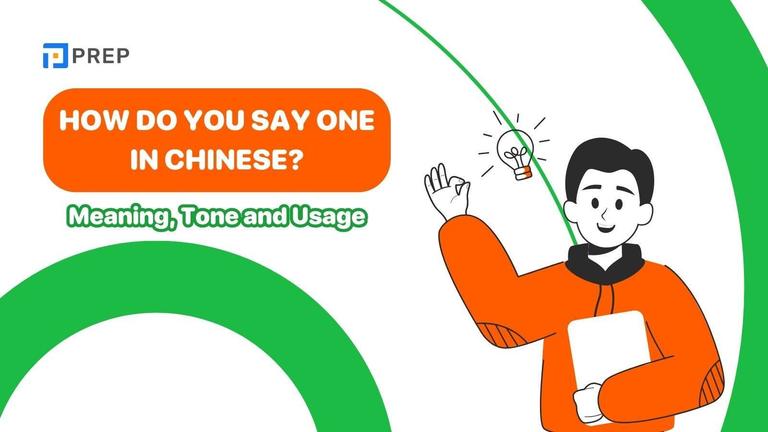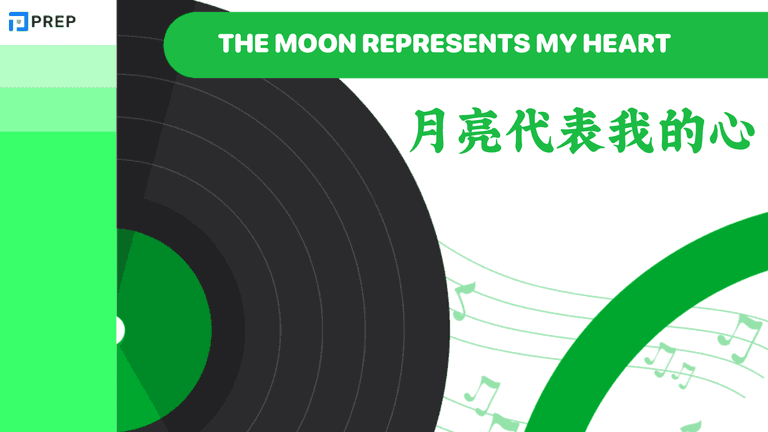Distinguishing countable and uncountable nouns & practicing exercises
Countable and uncountable nouns are key concepts you must understand when beginning to learn English to build your knowledge foundation and progress to more advanced grammar topics. How do countable nouns and uncountable nouns differ? When do we use uncountable and countable nouns? In today's post, PREP will provide tips for quickly and effectively distinguishing between these two types of nouns. Check it out!
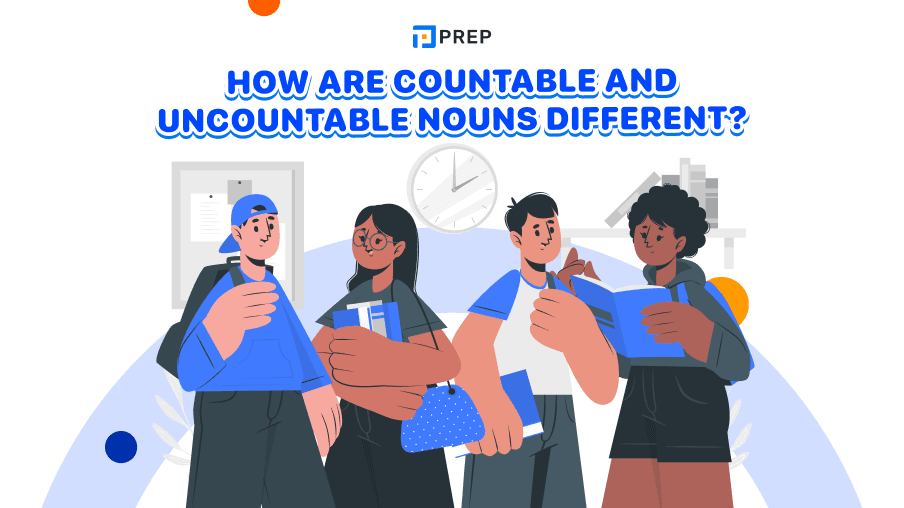
I. Countable nouns
Before distinguishing between countable and uncountable nouns, let's learn the concepts and forms of countable nouns in both singular and plural together with PREP!
1. What are countable nouns?
What are countable nouns? Countable nouns refer to things that we can count and determine a specific quantity of. For example:
- My sister has three cats.
- My father gave me a box full of books on my 20th birthday.
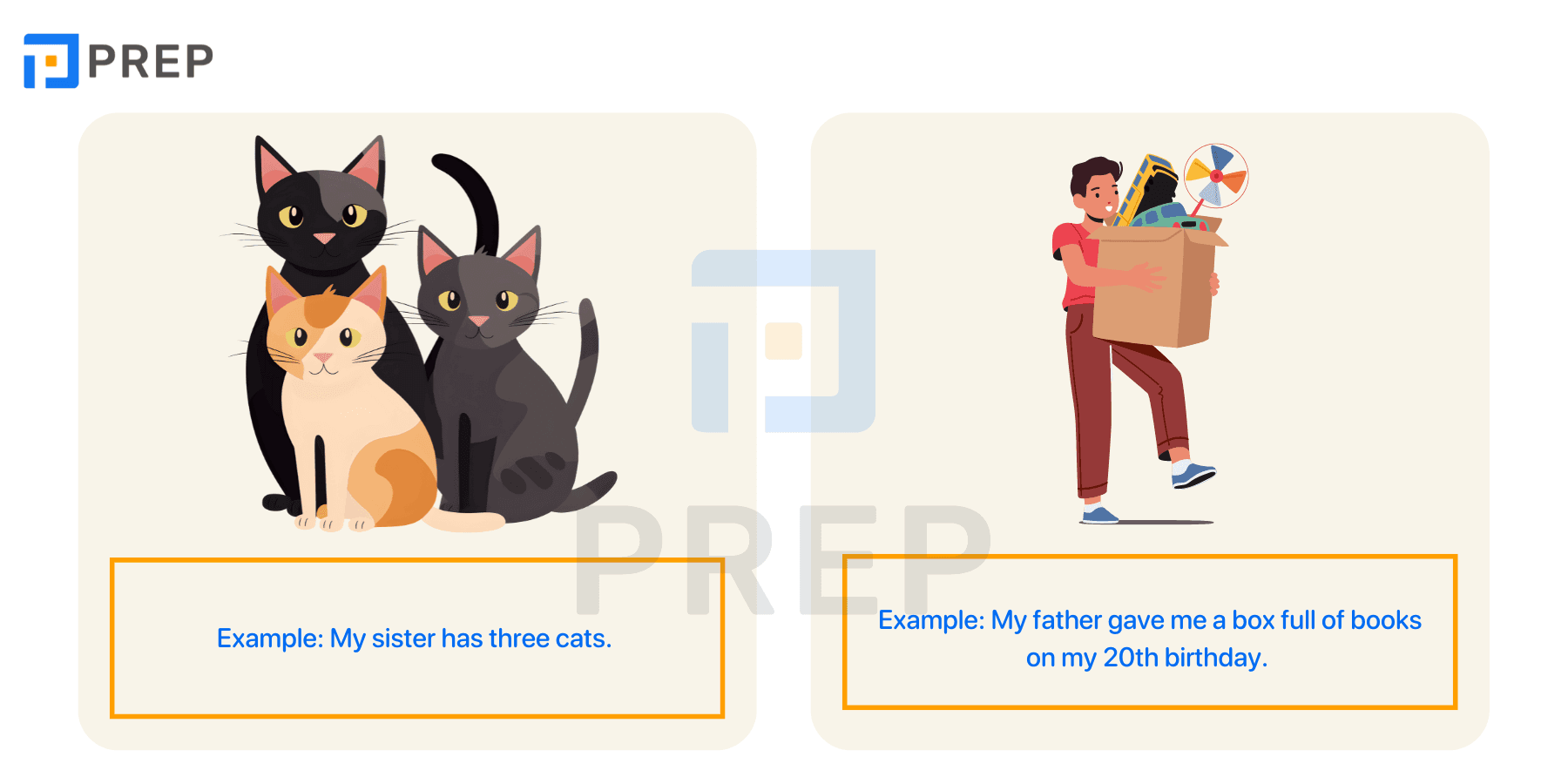
2. Types of countable nouns
Countable nouns are divided into two types: Singular nouns and Plural nouns. Now, we will explore the two types of nouns with PREP!
2.1. Singular nouns
Singular nouns are used to refer to one individual item or entity. These nouns are typically preceded by the indefinite articles ''a'' or ''an'', or sometimes the number ''one'' . For example:
- Jennifer has got a smart younger brother.
- The teacher gives each student one/a pencil.
2.2. Plural nouns
A plural noun is used when something has a quantity of two or more. Number words like “these, some, a few” will be used before plural nouns. For example:
- These glasses look so fashionable.
- Travelers can read a few magazines during the flight.
3. Distinguishing between singular and plural nouns
Next, we will differentiate between singular and plural nouns using the table below. :
|
Singular noun |
Plural noun |
|
|
Usage |
|
|
|
Example |
I have a book on my desk. |
I have three books on my desk. |
4. Methods for changing countable nouns from singular to plural
Let's learn with PREP about the ways to change countable singular nouns into plural nouns: Regular and Irregular.
4.1. Regular nouns
- Add "es" to nouns ending in: "ss, s, x, z, ch, sh". For example: We need a box for storage. ⏩ We need more boxes for storage.
- Add "s" to nouns ending in other letters. For example: A cat is sleeping in the sun. ⏩ Two cats are sleeping in the sun.
- For nouns ending in the consonant "y", remove "y" and add "ies". For example: The man gives the kid a strawberry. ⏩ The man gives the kid five strawberries.
- Add "s/es" to nouns ending in "o".
- If the noun ends in a vowel (u, e, o, a, i), add "s". For example: The editor has edited a video in a month. ⏩ The editor has edited 10 videos in a month.
- For other cases, add "es". For example: Yesterday my mom bought one tomato. ⏩ Yesterday my mom bought five tomatoes.
- For nouns ending in "f/fe", remove "f/fe" and add "ves". For example: My mother has bought a new knife. ⏩ My mother has bought two new knives.
- For nouns ending in "is", remove "is" and add "es". For example: There is an oasis which has been explored. ⏩ There are two oases which have been explored.
Note: Although these are common conversion rules, they cannot be applied to all nouns. You should learn more about exceptions.
4.2. Irregular nouns
Below is a table of irregular nouns where the plural form is completely different from the singular form. Check it out!
|
Singular noun |
Plural noun |
|
Pence |
Penny |
|
Woman |
Women |
|
Man |
Men |
|
Child |
Children |
|
Tooth |
Teeth |
|
Foot |
Feet |
|
Person |
People |
|
Mouse |
Mice |
|
Goose |
Geese |
|
Cactus |
Cacti |
|
Focus |
Foci |
|
Fungus |
Fungi |
|
Nucleus |
Nuclei |
|
Syllabus |
Syllabi |
|
Phenomenon |
Phenomena |
|
Criterium |
Criteria |
|
Bacterium |
Bacteria |
|
Datum |
Data |
II. Uncountable noun
To understand how to distinguish between countable and uncountable nouns, let's learn about the concept and quantification of uncountable nouns below!
What are uncountable nouns? Uncountable nouns are things that we cannot count and determine a specific quantity. For example:
- The manager wants me to report him detailed information.
- The doctor gives me important advice for my health.
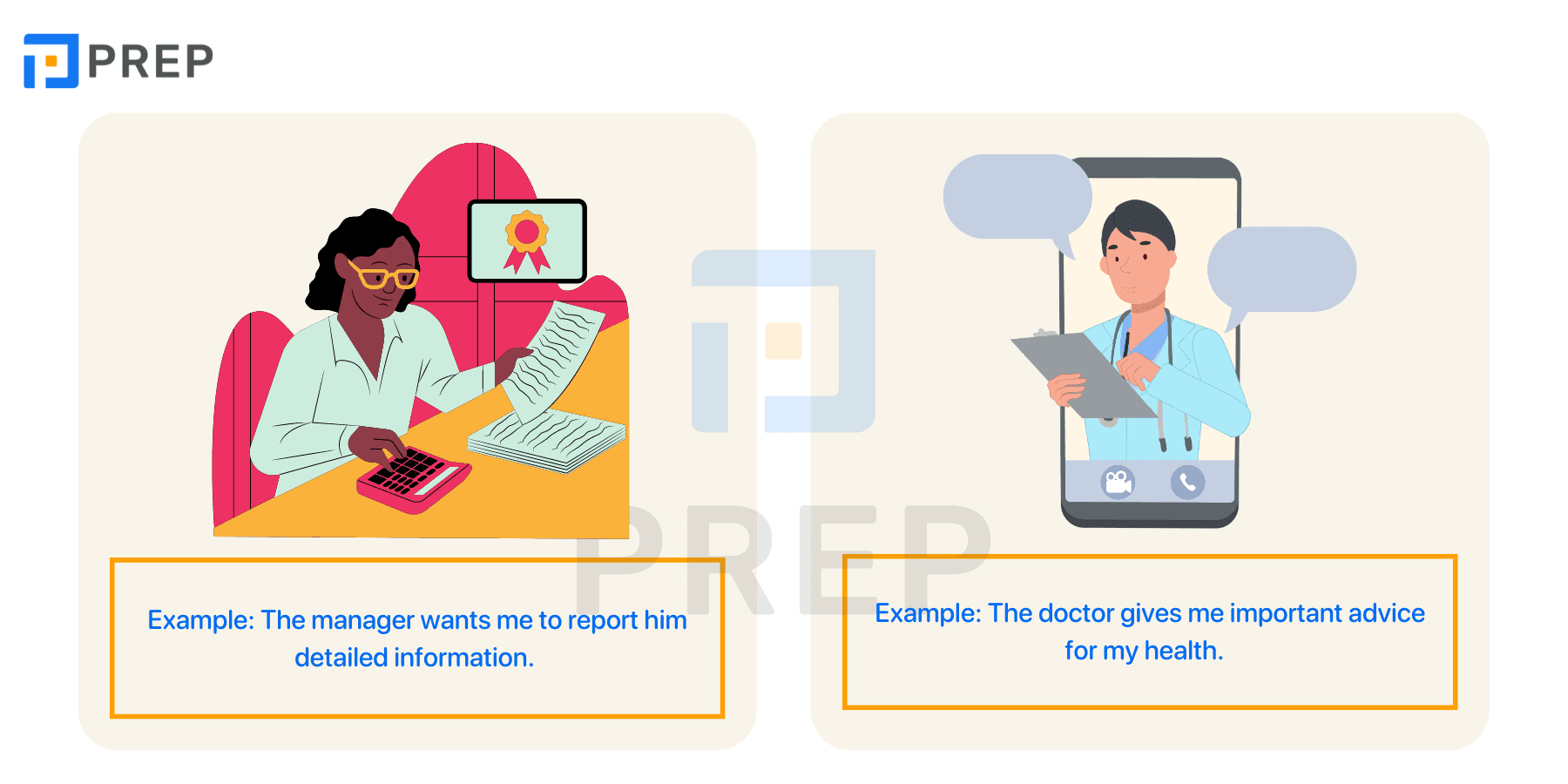
Uncountable nouns are often divided into 5 common topics:
|
Uncountable noun |
Example |
|
Ideas and experiences |
|
|
Materials and substances |
|
|
Weather words |
|
|
Names for groups or collections of things |
|
|
Type |
|
Note: Some common uncountable nouns include: accommodation, baggage, homework, knowledge, money, permission, research, traffic, travel,...
III. Ways to quantify countable and uncountable nouns
Below is a list of common quantifiers used with countable and uncountable nouns. Please check it out:
1. Quantifiers used with countable nouns
|
Quantifiers |
Example |
|
many |
Many students participate in the science fair. |
|
each |
Each student is required to submit their own project. |
|
either |
You can choose either option for your assignment. |
|
(a) few |
There are only a few apples left in the basket. There are few apples in the fridge, we have to buy more. |
|
several |
Several employees participated in the workshop. |
|
both |
Both candidates are well-qualified for the position. |
|
neither |
Neither option seems suitable for the task. |
|
fewer |
There are fewer books on the shelf after the sale. |
|
a couple of |
I need a couple of minutes to finish this task. |
|
hundreds of |
There are hundreds of customers waiting in line. |
|
thousands of |
The stadium can hold thousands of spectators. |
|
a troop of |
We saw a troop of monkeys in the jungle. |
|
a swarm of |
A swarm of bees is buzzing around the garden. |
|
a school of |
We observed a school of fish while snorkeling. |
|
a pride of |
The safari group spotted a pride of lions in the distance. |
|
a pod of |
We saw a pod of dolphins swimming near the boat. |
|
a pack of |
There is a pack of wolves roaming in the forest. |
|
a litter of |
The cat gave birth to a litter of kittens. |
|
a covey of |
We spotted a covey of quails in the field. |
|
a bed of |
The garden has a bed of colorful flowers. |
2. Quantifiers with uncountable nouns
|
Quantifiers |
Example |
|
much |
There isn't much time left to finish the project.
|
|
a bit |
I'm feeling a bit tired after the flight.
|
|
little |
I have a little knowledge about that subject. I have little knowledge about that subject, I have to learn more. |
|
a bar of |
I enjoyed eating a bar of chocolate after dinner. |
|
a piece of |
Lona gave me a piece of advice on how to improve my writing. |
|
a bowl of |
I like to start my day with a bowl of cereal and fresh milk. |
|
a glass of |
Matthew poured a glass of beer to enjoy while watching the game. |
|
a cup of |
I start my day with a cup of coffee to wake up. |
|
a loaf of |
We need to buy a loaf of bread for sandwiches. |
|
a work of |
The museum features a work of art by a famous painter. |
|
a pat of |
Please pass me a pat of butter for my toast. |
|
a game of |
They enjoy playing a game of chess in the evenings. |
|
a tube of |
I need to buy a tube of toothpaste because I've run out. |
3. Quantifiers for both countable and uncountable nouns
Note about symbols:
- Countable nouns (C)
- Uncountable noun (U)
|
Quantifiers |
Countable and uncountable nouns |
Example |
|
All |
C |
All the students completed their assignments on time. |
|
U |
All the information is stored in this database. | |
|
Some |
C |
Can I have some apples, please? |
|
U |
Could you please give me some advice on this matter? | |
|
More |
C |
We need more chairs for the meeting. |
|
U |
We need more time to complete the project. | |
|
A lot of |
C |
There are a lot of books on the shelf. |
|
U |
Fiona has a lot of experience in the field of technology. | |
|
Enough |
C |
Do we have enough workers to finish the project? |
|
C |
There is not enough sugar for the recipe. | |
|
No |
C |
There is no egg left in the refrigerator. |
|
U |
There is no furniture in the living room. | |
|
Any |
C |
Are there any students in the classroom? |
|
U |
Is there any happiness in life without challenges? | |
|
Most |
C |
Most of the employees participated in the training session. |
|
U |
Most of the furniture in the house is antique. | |
|
Lots of |
C |
Maria haslots of friends in different countries. |
|
U |
I have lots of excitement about this event. | |
|
Less |
C |
I have less books than I thought. |
|
U |
I have less patience when I'm tired. | |
|
Plenty of |
C |
There were plenty of friends at my birthday party. |
|
U |
Robert has plenty of time to finish the assignment. | |
|
Heaps of
|
C |
We have heaps of tasks to do before the deadline. |
|
U |
There are heaps of sand on the beach. | |
|
A load of |
C |
Alex brought a load of pens from the store. |
|
U |
Peter received a load of criticism for his decision. | |
|
Loads of |
C |
Our team received loads of compliments on the presentation. |
|
U |
Anna has loads of energy in the morning. | |
|
Tons of |
C |
We have tons of trucks for the construction project. |
|
U |
There is tons of information available on the internet. |
IV. Distinguishing between countable and uncountable nouns
PREP will provide tips to distinguish between countable and uncountable nouns through concepts and usage examples for you below. Check it out!
|
Countable Nouns |
Uncountable Nouns |
|
|
Definition |
|
|
|
Example |
|
|
V. Special cases of nouns
Although we have understood the concepts and separate rules of countable and uncountable nouns, there are still some nouns that belong to special cases. Let's learn about them below!
1. Nouns ending in "s" but are singular
Below PREP will share with Preppies some nouns ending in "s" but are singular. For example:
|
Topic |
Example |
|
Types of diseases |
|
|
Subjects and fields of research |
|
|
Games |
|
2. Nouns that are always plural
Some nouns will always be in plural form, whether they end in "s/es" or not. For example:
- The police are catching the robbers at the moment.
- My brother has bought new shorts.
VI. Countable and uncountable nouns exercises
To solidify your understanding, practice the following exercises. :
1. Exercises
Exercise 1: Change the following singular nouns into plural form
- Girl
- City
- Box
- Chair
- Book
- Flower
- House
- Computer
- Teacher
- Watch
Exercise 2: Categorize the following nouns into the two tables of countable and uncountable nouns
|
Bird, Music, Encouragement, Flower, Happiness, Boy, Salt, Sugar, Water, Keyboard |
|
|
Countable nouns |
Uncountable noun |
2. Answer
Exercise 1:
- Girls
- Cities
- Boxes
- Chairs
- Books
- Flowers
- Houses
- Computers
- Teachers
- Watches
Exercise 2:
|
Countable nouns |
Uncountable noun |
|
Bird, Flower, Keyboard, Boy. |
Music, Encouragement, Happiness, Salt, Sugar, Water. |
VII. Achieve Your Dream Band Score
PREP hopes after reading this article, you will be able to grasp the concepts and distinguish between countable and uncountable nouns and if you’re aiming for IELTS excellence, explore these top-notch resources designed for high achievers below:
- IELTS course: Score Big in IELTS With Our Expert Tips!

Hi I'm Chloe, and I am currently serving as an Product Content Administrator at Prep Education. With over five years of experience in independent online IELTS study and exam preparation, I am confident in my ability to support learners in achieving their highest possible scores.
Comment
Premium content
View allPersonalized roadmap
Most read




